When you sleep, your body uses mostly stored body fat to fuel your automatic body processes—remember, we burn calories when we sleep and most of those calories come from stored body fat—as well as nutritional protein to repair damaged cells.
For breakfast your body tries to replace the stores it used overnight in case you don't refuel it again soon. In addition to this, breakfast appears to provide fuel for your muscles and brain to function efficiently in the morning, as well as continue to repair cells. Your body needs enough calories to make all these processes efficient.
Choosing the right food for breakfast
All foods provide a thermogenic effect on the body through the calories they contain. The more calories the food has, the more fuel it provides for the fire. The bigger the fire - the more nimble and more efficient your daily actions will be, be it reading or running.
Some foods have more calories per gram than others and no two calories are equal. For example, if a person decides to make 3 cereals of 500 calories each:
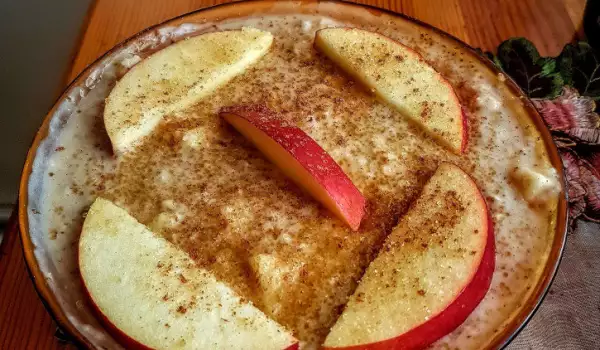
• 100 g oats with water, almonds, fruit and skimmed yogurt;
• 50 g muesli (no added sugar) with semi-skimmed milk, honey, banana and pumpkin seeds;
• 40 g of raisins with skimmed milk, sprinkled with sugar and a piece of white toast with raspberry jam.
People believe that if they eat these 3 breakfasts consecutively for 2 months, eating the same food, they will always have a total of 2000 calories per day. They kind of guaranteed themselves that they would burn those 2000 calories a day and that their body would be the same after the 2 month period.
They believe this, because they think that calories are just calories and in order not to gain fat, you just need to get the same number of calories that you burn every day. This is WRONG!
The composition of your calories is just as important as the number of calories you consume - especially at breakfast. When your body gets food for the first time after the night, it seems that it tries to store some of the fuel as body fat. However, this can become even more effective with some foods than others. If you have to remember one point from this article, it should be this:
Foods high in sugar are the worst choice for your breakfast!

This is because your body stores your body fat most efficiently from sugar. Eating foods high in sugar will send your blood sugar up. The higher your blood sugar, the greater the secretion of the hormone insulin. Insulin stores fat in the body. The more insulin is secreted, the more fat is stored. Also, the main function of insulin is to remove high and potentially toxic levels of sugar from the blood and in doing so, it sends your blood sugar crashing again. This can cause you to want and need more sugary foods to get your blood sugar to a level you can work with and then the cycle of insulin secretion and blood sugar removal continues.
So start the day with sugar and you'll have another 15 hours of insatiable sugar cravings!
Choosing the right pre-workout breakfast option means you won't let your body store too much body fat from your food. So while you are sleeping you will be burning body fat for energy and after waking up and eating you will not have that fat in your body.
On heavy workout days, you'll need to pay close attention to your hydration levels and your carbohydrate intake. Proper fitness nutrition is especially important to meet the increased training demands of the body and provide it with rapid fuel and overall recovery. Hydration is a key element as you will sweat more and lose water.
Meal plan on heavy workout days
Meal plan for heavy workout days (two or more workout sessions or a long endurance-based session).
Increase Carbs! Carbohydrate intake is increased on these days and as a general rule should be included with all main meals to replenish muscle glycogen (fuel) levels.
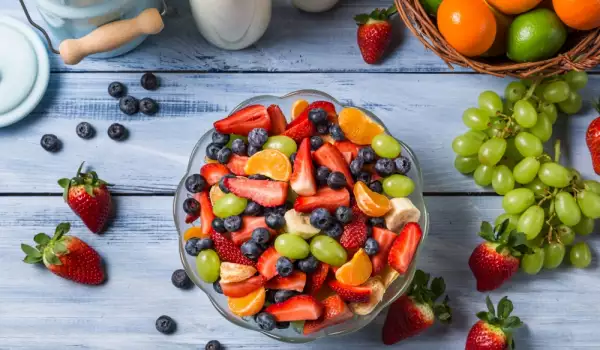
Light fitness snacks can also be used to support a high training volume. High-carbohydrate mid-morning or mid-afternoon snacks can be a useful tool to increase overall intake or as a quick pre-workout snack.
The priority is to increase carbohydrate intake (as the main fuel), but be sure to maintain protein and polyunsaturated fatty acids with each meal. Be sure to include an evening snack containing protein, since this is vital to help your body recover from a hard day's workout and to support muscle growth at night as a lot of growth and repair (adaptation) will take place in the muscles.
Other nutrients for pre-workout breakfasts
Increase fluid intake to compensate for sweat losses during exercise and stick to tried-and-tested foods before settling in for the long run. Avoid foods that can cause gastrointestinal problems such as spices, fats or very high fiber content.
Choosing fruit and vegetables that contain antioxidants or dietary nitrate can offer additional benefits to muscles during exercise and recovery.
Don't just eat cereal or oatmeal for breakfast. Different morning routines call for different morning meals. Whether you're trying to lose 10 pounds or pack on some mass, one of these eight treats will start your day on a high note.
The best workout breakfast IF:
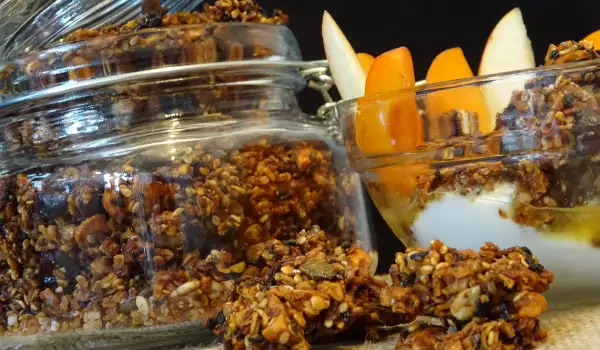
1. You strength train early in the morning
Make building muscle with protein a priority. Combine 1/4 cup granola, oats, chopped almonds and raisins or dried cranberries with low-fat milk. Feel free to eat half and save the rest for tomorrow, depending on your calorie needs.
After you leave the gym, get another 20 grams of protein, as studies show this is ideal for kick-starting the muscle recovery process. Try 170 g of fat-free or low-fat ricotta cheese, a cup of fat-free or low-fat Greek yoghurt or 85 g of sliced roast beef or roast chicken.
2. You do cardio early in the morning
Your muscles run on carbohydrates as their primary fuel source, so eat an hour before your workout to boost energy and give your body time to break down the food. Mix plain yogurt or low-fat yogurt with oatmeal and add with fresh fruit or raisins - perfect pre-workout breakfast.
Post-workout, enjoy a combination of carbohydrates to replenish protein and glycogen stores to maximize muscle recovery, ideally up to 30 minutes post-workout - this is the best time when the muscles are like a sponge, absorbing all those nutrients. A 100-calorie whole-wheat sandwich with a thin layer of peanut butter covered in honey or jelly is an easy choice.
3. You practice yoga early in the morning

Breakfast is not a one-size-fits-all yoga practice. Since lighter versions of yoga usually don't burn as many calories, I recommend eating fruit or a bowl of apples before starting yoga to pump up energy without feeling heavy during exercise.
4. You are trying to lose weight
For the same waking powers of caffeine, you have healthy antioxidants and no calories – green tea. Then make an egg or two with a piece of fruit like an apple or a cup of raspberries.
5. You feel like you ate too much yesterday at dinner
Eat! This will keep your metabolism going. Eat something light within an hour of waking up, like a piece of fruit. And next time move dinner earlier. Eating should be finished two to three hours before going to sleep. This regimen will give your body enough time to get everything out before your morning.
6. You will have a late lunch
Slow-digesting fiber and protein are your best friends when you want to keep you feeling full. A cup of plain low-fat yogurt served with high-fiber cereal and fresh or frozen blueberries is a super choice.
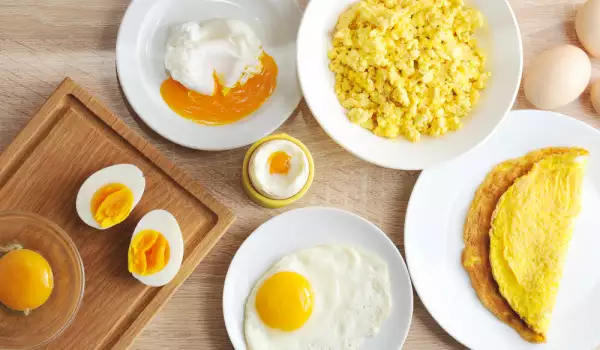
The last thing you want is food sitting like a rock in your gut. Keep them healthy by combining and blending frozen fruit and milk or a non-dairy alternative to slow down the rate at which your body absorbs sugar and keep you full for longer.
See more about diets for people who workout.
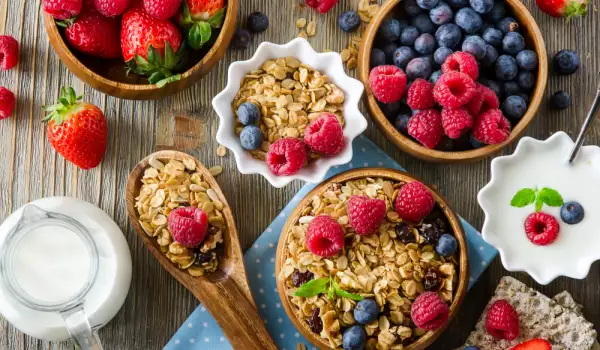



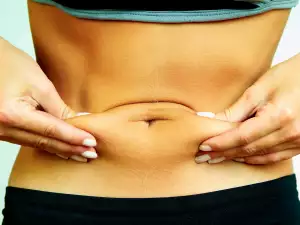



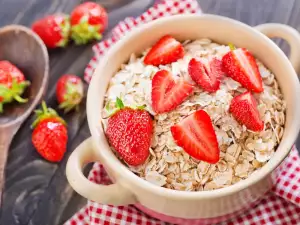











Comments